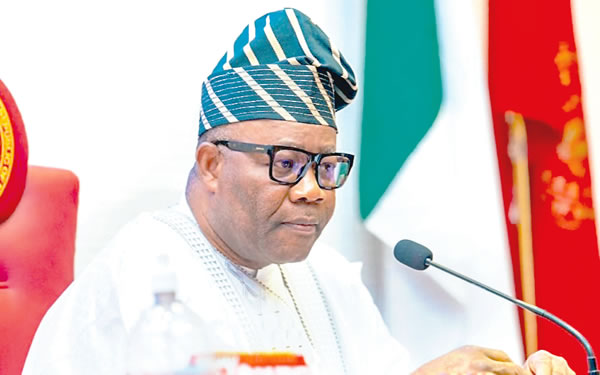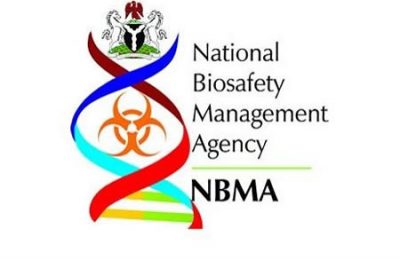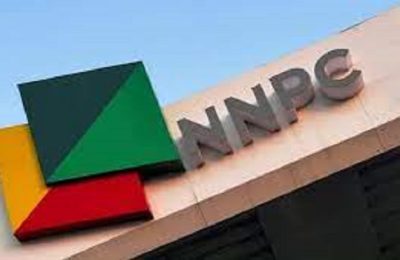As the Senate initiates another probe into issues bordering on alleged gross abuse in the nation’s oil industry, JOHN AMEH, takes a look into what is becoming a recurring decimal.
HAPPENINGS in Nigeria’s oil/gas industry always raise concerns, and interest. The reason is not far-fetched -it has been and remains the mainstay of Africa’s most populous economy, pooling a revenue of over $ 741.48 billion between 1999 and 2020. From 2011 to 2022, oil sector revenue totalled $394.02bn, according to the Nigeria Extractive Industries Transparency Initiative (NEITI).
In 2021, the annual oil revenue was $23.046bn, up by 13% from the N$20.43bn generated the previous year. Available statistics also indicate that as of July 2022, oil sales commanded 80% of the country’s total export revenue and adding up to 8.79% to its GDP.

Furthermore, in spite of a dip in production output lately due to crude theft and vandalism of installations, resulting in a daily loss of around 800,000 barrels per day, the July 2023 oil revenue stood at N1.6trillion (around $3.6bn) -all underscoring the key role oil plays in the economy.
Yet, Nigeria and Nigerians have hardly realised the full potential from oil due to the sector being a cesspool of sleaze orchestrated by industry cabals drawn from government officials, agencies, oil companies, saboteurs and other collaborators that leech on the commonwealth of the majority of the populace.
Many attempts at rescuing the sector and repositioning it to make its multi-billion dollar resources useful to the suffering millions of the population, including the passing into law of the Petroleum Industry Act (PIA, 2021) have rarely succeeded.
As a matter of fact, records abound that since the country returned to democratic governance in 1999, successive National Assembly tenures (both Senate and House of Representatives) have investigated the oil sector, dissecting the operations of the oil behemoth -Nigeria National Petroleum Company Limited (NNPCL) -and its subsidiaries, and more, without a headway.

Noteworthy too is that at the end of each repeat probe, mind-blowing revelations are made and recommendations on punishment made. But, regrettably, that’s where and how it has always ended, either because a lethargic executive is, unwilling to go after the ‘culprits’ or a weak legislature is unprepared to wield its enormous powers to compel compliance with its own resolutions.
It, therefore, caught immediate attention when the current 10th Senate under the leadership of Godswill Akpabio, on July 3, passed a resolution to embark on another major probe of the oil and gas sector.
Following a motion moved by Senator Asuquo Ekpenyong (APC, Cross River-South), the Senate empanelled an Ad-hoc Committee to investigate “The Alleged Economic Sabotage in the Nigerian Petroleum Industry.”
It is chaired by the Majority Leader of the Senate, Senator Michael Opeyemi Bamidele (APC, Ekiti-Central).
Ekpenyong had raised the alarm over the deadly activities of a cartel with a vast network, cutting across offshore/onshore Nigeria, importing hazardous petroleum products into Nigeria and dumping substandard diesel on the country with the huge consequences on safety of life, loss of property and other economic losses.
For instance, he cited a June 16, 2024 development where “12 diesel cargoes, totaling 660kt, were exported by refineries to offshore Lome, Togo, for distribution in West African markets, particularly Nigeria. The quality of the diesel was reported to be below Nigerian standards in terms of flash and sulfur levels. Despite its substandard nature, this diesel still found its way into the Nigerian market.”
The senator also said “pricing of the imported diesel was below fair market value, constituting a violation of World Trade Organisation (WTO) rules against dumping”, calling on Nigeria to protect its local industries and domestic producers against such unfair practices that could reverse efforts to reorganise the sector.
He raised concerns that though the Nigerian Midstream and Downstream Petroleum Regulatory Authority (NMDPRA) had revised the standards for diesel importation in line with the PIA, not much seemed to be working in terms of enforcement of the standards.
In passing the resolution, the Senate asked the Bamidele committee to do more -dissect the entire industry and unearth alleged growing cases of malpractices, weak regulation or failure to comply with industry rules and regulations, notwithstanding the existence of the PIA.
Speaking at a news conference in Abuja on Senator Bamidele broke down the details of the assignment before the 15 ‘wise’ members of his panel.
Mandate of ad-hoc committee
He said, among others, the panel would examine the pre-shipment and pre-discharge standard test parameters adopted by the Nigerian Midstream and Downstream Regulatory Authority “with a view to uncovering loopholes, if any, being exploited to get toxic cargoes into the country” and determine the level of compliance of the NNPCL’s Direct Sale and Direct Purchase (DSP) arrangements “in line with the provisions of the Petroleum Industry Act, including the extent of transparency and accountability.”
Bamidele said the ad-hoc committee would also beam searchlight on the activities of the Nigerian Midstream and Downstream Petroleum Regulatory Authority (NMDPRA), including payments made to transporters in the last 10 years; he spoke further, “Enquire from the NNPCL the state/status of the 22 depots built by the defunct NNPC to eliminate road distribution of petroleum products.
“Engage with stakeholders within the oil and gas industry with a view to identifying possible gaps in regulating and strengthening the surveillance and monitoring structures in place to enable Nigeria to detect violations of best practice standards in the importation of products before they enter into the domestic supply chains; “also engage with the NNPCL with a view to understanding the extent of its determination and timelines for the start-up of government-funded oil refineries, “investigate how institutions across the importation and distribution chain failed to conduct quality sampling, shipped in products without auditing, and performed port validations by the Nigeria Customs Service, Nigerian Midstream and Downstream Petroleum Regulatory Authority (NMDPRA), Nigerian Maritime Administration and Safety Agency, Standards Organization of Nigeria (SON); and Nigerian Ports Authority (NPA): and (h) Such other consequential amendments the Ad-hoc committee deems fit.”
In the course of the probe, the Ekiti lawmaker said on-the-spot-assessment to facility sites and other physical inquiries would be carried out by the committee, including reviewing the Turn Around Maintenance (TAM) contracts of the country’s four refineries, which had gulped billions of dollars without positive gains.
Those on the radar
Bamidele said those identified for appearances were the Minister of State for Petroleum (Oil), Senator Heineken Lokpobiri; Federal Ministry of Finance; Federal Ministry of Trade and Investment; Nigerian National Petroleum Company Limited (NNPCL); National Engineering and Technical Company Limited (NETCO) and Contractors); Central Bank of Nigeria (CBN); Nigerian Midstream and Downstream Petroleum Regulatory Authority (NMDPRA); Nigerian Upstream Petroleum Regulatory Commission (NUPRC); Standards Organisation of Nigeria (SON); and the Nigerian Maritime Administration and Safety Agency (NIMASA).
The list also named the Nigeria Customs Service; Nigerian Navy; OBAT Oil; Matrix Energy Depot; Independent Petroleum Marketers Association of Nigeria (IPMAN); International Oil Companies (IOCs); Depot and Petroleum Products Marketers Association of Nigeria (DAPPMAN); Major Oil Marketers Association of Nigeria (MOMAN); Nigeria Ports Authority (NPA); Dangote Group; Modular Refineries; and Capital Oil.
Of course, this isn’t going to be a witch-hunt, a promise common with a legislative inquiry, in the hope that those making appearances can be rest assured that it’s a fair engagement. Hear the Ekiti lawmaker, “May I categorically state that this Ad-Hoc Committee is not meant to witch hunt any individual or group of people, or corporation, but rather to find a lasting solution for our collective mutual gains. “To this regard, the ad-hoc committee seeks the cooperation of stakeholders in order not to jeopardize the good intention of the Senate.”
But, the real issue is the begging question, and Bamidele knows -haven’t we passed through this route before? From Assembly to Assembly, the oil industry has always been investigated. What happened to previous probe reports? Why were they not implemented? Why can’t the Senate simply dust them up or ask the executive to act on them, rather than embarking on what in the eyes of many Nigerians, a money-guzzling venture that may turn out to be another voyage in futility?
Are we now baptised anew?
It seemed a struggle as Senator Bamidele and his “trusted” colleagues tried to reassure Nigerians that things would be different this time round. For example, he said in the years before now, the absence of the PIA made it easier for the industry to have been taken hostage by economic marauders. According to Bamidele, if lack of a legal framework was the excuse for the thievery and distortions of the past, the same excuse can’t be tenable today, hence the committee, in the course of its assignment, will fully apply the law in recommending punishment for breaches. “We are going to approach the assignment on a note of integrity for our nation, our future and for our own sake. There’ll be no sacred cows or any form of protection for anyone”, Bamidele maintained, adding that even if a senator was found to be behind any shady deals or an economic saboteur, the rod would not spare him. He mentioned the fact that the current row between the management of Dangote Refinery and industry regulators over alleged attempts to sabotage the $20bn facility and the regulators’ claim that Aliko Dangote sought to become a monopoly by driving out other players, would be probed. “Our mandate is to investigate the entire industry. And we have a duration of three weeks to accomplish this task,” he added.
The lawmaker spoke of how Senator Akpabio “carefully” selected members of the committee by picking those whose integrity he could vouch for, while in the days to the sitting of the panel, members who might have conflicts of interest, had been diplomatically recused.
Notables among the committee members include Senator Mohammed Monguno (APC, Borno-North); Senator Adams Oshiomhole (APC, Edo-North); Senator Abdul Ningi (PDP, Bauchi-Central); Sen. Osita Izunaso (APC, Imo-West); Senator Adeola Olamilekan (APC, Ogun-West); Senaor Adetokumbo Abiru (APC, Lagos-East); Senator Ipalibo Banigo (PDP, Rivers-West): Senator Asuquo Ekpenyong (APC, Cross River-South); and Sen. Abdullahi Yahaya.
Oshiomhole, while making a case for the selection of the committee members, argued that it’s not often the Senate would appoint a committee to be chaired by a principal officer in the status of Sen. Bamidele, noting that it was an indication that “Mr Senate President wants a thorough job done and it’s not for nothing that he chose the Leader to chair the committee.” On whether he could compromise, Oshiomhole replied, “At this age, what do I need? Most of us here are professionals and we are ready to do this work. Anyone with conflict of interests will be excused along the way.”
On his part, Senator Abiru said the panel would be different from the previous attempts because “this is a time when the government was bold enough to remove fuel subsidies; so anything that will cause setbacks for the industry will not be condoned.” Senator Ningi made a similar commitment, “This is a very hard assignment. We are here to assure you that we will walk the talk. There will be changes this time, and the press will be made aware of all our findings for the benefits of Nigerians.”
Many would say these tunes sound like broken records heard again and again over the last 25 years and counting. The consolation then is that three weeks is not eternity; as the committee begins its public sitting starting September 10, can Nigerians still give this panel another benefit of the doubt?
READ ALSO: Shelve planned protest, Yoruba Diaspora group tells Nigerians







